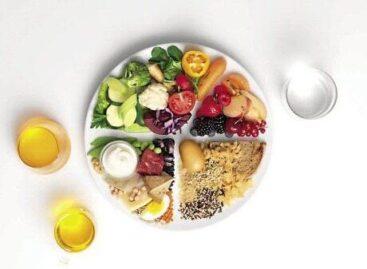Magazine: Future-resistant food industry: What does crypto mining have to do with stevia?
Rethinking is necessary

Júlia Dalmadi
food futurist
Food futurist Júlia Dalmadi was the guest at the January 2022 meeting of the Chain Bridge Club. She told that there is growing demand for the food system to involve companies whose strategies focus on the health and well-being of both the planet and its population. In spite of the fact that this approach is likely to attract incredibly loyal consumers, there is only one food company, Unilever is ranked 79th, on the Top 100 list of Corporate Knights Global.
The pandemic made it clear that we need to rethink those standards which companies follow in their operations and rely on to assess the economy and their own success rate. Even more so as consumers find it increasingly important how big the ecological footprints of food companies are.
Inequalities and deficiencies
In Hungary not many people have heard about the international research project called Nutrition Unpacked, which commenced in 2020 and seeks to find out why nutrition disparities exist. The 3-month research studied six countries (Poland, USA, Brazil, Zimbabwe, Japan and India) and one of its findings was that access to food depends on three factors: social acceptability, affordability and availability. As for the six countries examined, six key factors were identified.
Education: it is very often discussed how much food-related knowledge is missing from school education, but we tend to forget that families are also places where children learn. Education is taking place in supermarkets and on food labels too – basically everywhere.
Key role of women: in families it is typically women who make food-related decisions. Despite this they suffer from ‘hidden hunger’ the most, as in many families they are the last one to eat and the nutritional value of the food left is often not optimal.
Affordability: there is a general need for food to be cheap, but it is very difficult to use this word in a positive sense for the food we eat. If we don’t pay the price of quality food in the supermarket, we will pay it with our own or the planet’s health.
Physical distance: this factor can also limit access to nutrition, together with a limited selection of food products available. The latter is present in Hungary as well, since outside of the bigger cities it is very often the supermarket chains who make the decisions instead of the consumers.
Social acceptance: in some cultures – and this is also true for Hungary – certain diets (for instance traditional cuisine) are associated with a specific social status. In Africa or Brazil eating highly processed foods represents a higher social status, while in Hungary the young generation doesn’t really want to eat the foods of classic Hungarian cuisine.
Accessibility: water or the lack of it plays a key role – this is a problem to which a solution must be found as soon as possible. This factor is also related to the issue of biodiversity, as there are approximately 6,000 crop species grown for food, but fewer than 200 make a significant contribution to global food production.
Duckweed and crypto mining
In connection with agricultural innovations appearing in smart cities, the importance of the multifunctionality trend must be stressed. For instance in Valencia researchers have started using duckweed for treating wastewater, by this producing protein for feeding livestock and making biofertilisers. A Czech company has launched a project that seeks to use the excess heat generated by crypto mining for heating greenhouses, where stevia would be grown in a hydroponic system.
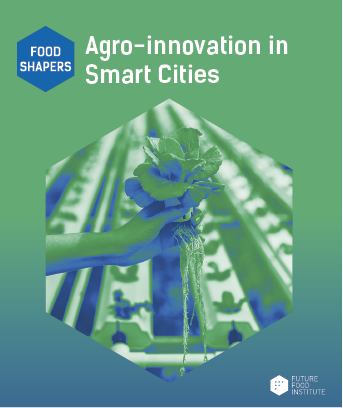
How does foodservice turn into care?
Shoppers show growing demand for buying groceries that can help them stay healthy. How can food companies contribute to not only the physical, but also the mental health of consumers? One way is personalised diet, for instance in China Nestlé launched a food pack the items in which can be mixed with drinks – anyone can prepare them to suit their own individual diet. When food is interpreted as medicine, there are initiatives such as Eosta’s Dr Goodfood in the Netherlands: doctors and dietitians help customers in supermarkets to choose the products that are best for them.
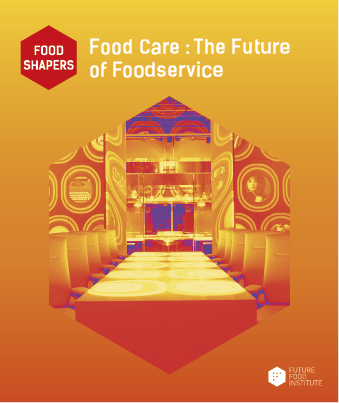
Other important factors are convenience and time, and technology can play a key role in these. A time will come when 3D printers will appear in the kitchens of families. Barilla already has a project called Blue Rhapsody for printing customised pasta, to satisfy the needs of chefs or various events.
The future of animal protein and its alternatives
Almost everyone has already heard about meat alternatives made of plant-based protein and cell-based protein. There is great debate about whether the food we currently eat can be replaced with products made from insects and worms. One thing is for sure, these are perfect for producing protein for feeding livestock. There is great potential in mushrooms too, as they can be grown with relatively small resources. Plus eating mushroom has many beneficial health effects as well. Plant-based milks are widely consumed in Hungary too. However, few people know that these can be made from not only oilseeds, oat or soy but also from potato and malt.
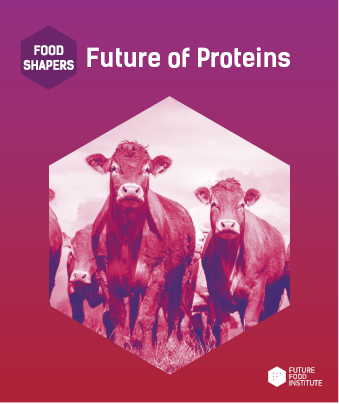
Growth or prosperity – the Doughnut Economy model
A paradigm shift is inevitable and in connection with this we must mention the so-called Doughnut Economy model: this calls attention to the fact that GDP-based measuring and the idea that the market must grow and not thrive have become rather obsolete. In the centre of the ‘doughnut’ there are the physical needs that must be satisfied, and after this we reach the part where things work in a balanced fashion and we prosper until we reach the ecological limit. Once we surpass this, the consequences are climate change, soil depletion and biodiversity loss. Constant growth would be achievable even if humanity stayed below the ecological limit – says Kate Raworth, who created this model.
Upcycling instead of take-make-waste
For the health of our planet, it is essential to give up the current ‘take-make-waste’ model. One of the ways to achieve this is upcycling byproducts into foods. This process is demonstrated very well via the project of TransFoodMission Kft., which was founded last July. They use brewers’ spent grain – the grain mix remaining after the beer filtration – and turn it into nutritious granola. Thanks to the nature of the raw material, it has high fibre and protein content and contains Vitamin B and other minerals. With upcycled products, it is very important to create foods that consumers are familiar with.
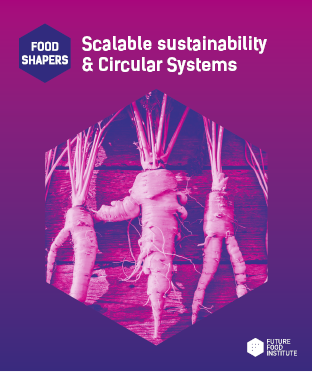
Related news
The future of the Hungarian food industry: sustainable innovation
Both as owner of Real Nature Kft. and as chairperson…
Read more >Chain Bridge Club October exclusive: Even with high purchasing power, there are challenges: an up-close view of the Belgian market
Péter Szautner, managing director of FrieslandCampina gave an insight into…
Read more >On the threshold of a paradigm shift in food supply – Food policy analyst Réka Szöllősi was the guest at the September meeting of Chain Bridge Club
First Réka Szöllősi told in her retrospective that consumer protection…
Read more >Related news
The Joy of Giving! – SPAR stores collect non-perishable food for people in need
The Hungarian Maltese Charity Service and SPAR Hungary have launched…
Read more >Technological advancements and business travel
The latest research from International Workplace Group (IWG), the leading…
Read more >K&H: a gift, but what and from which store?
When it comes to Christmas gift-giving, clothes are the most…
Read more >


